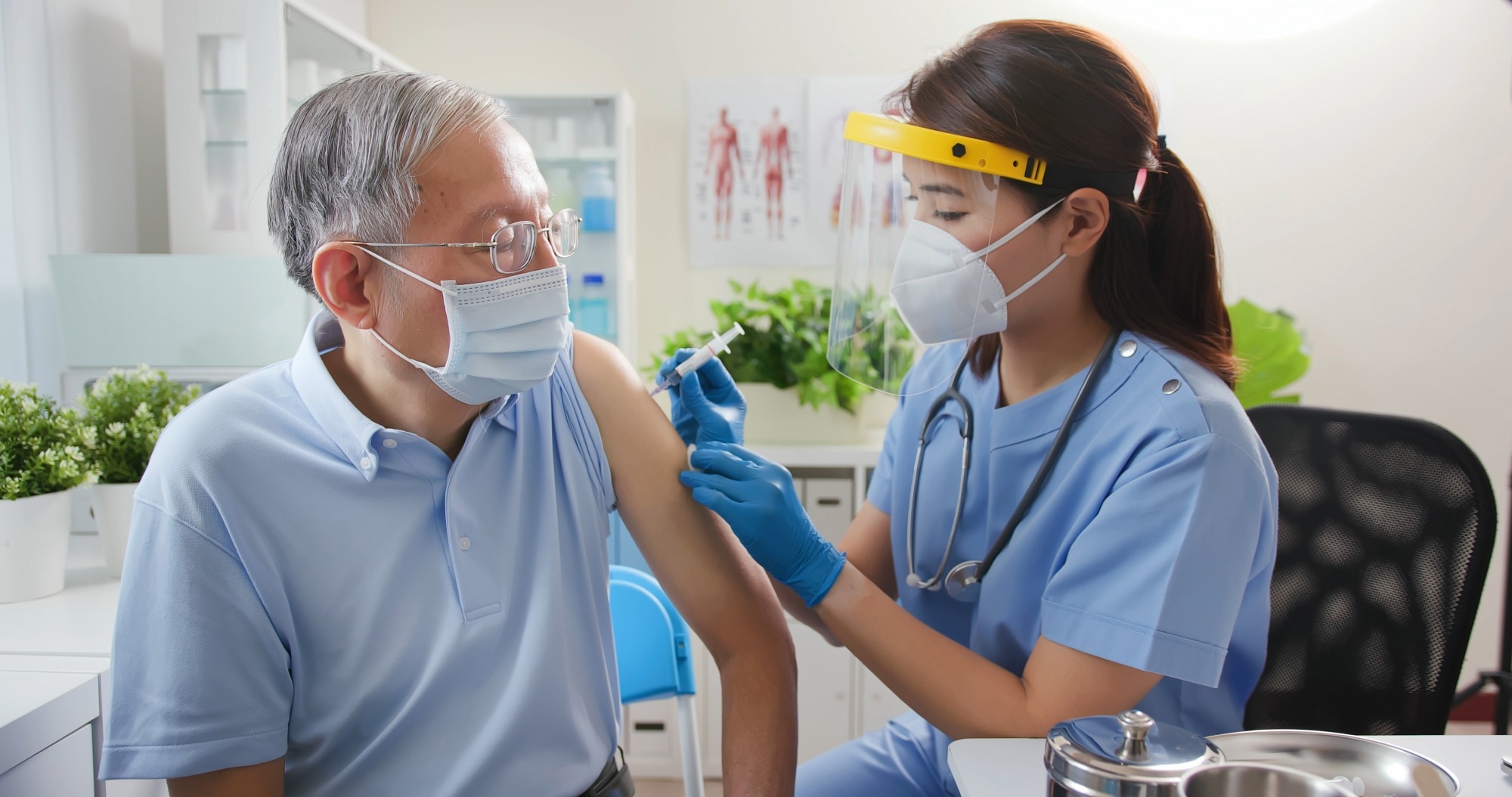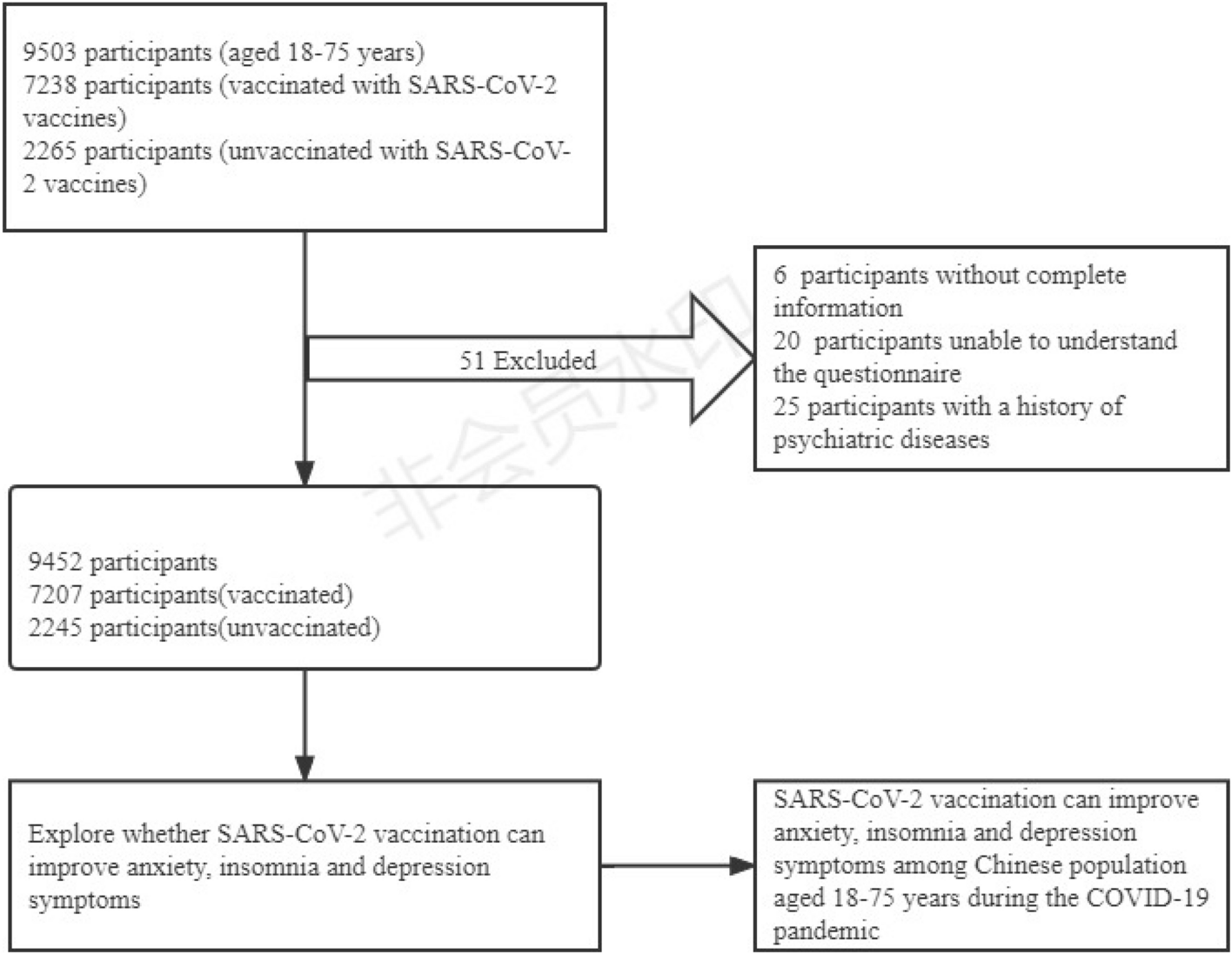The coronavirus disease 2019 (COVID-19) pandemic has unprecedentedly impacted society. Evidence suggests increased rates of psychiatric disorders during the pandemic. Further, studies have observed a reduced prevalence of anxiety and depressive symptoms among people vaccinated for COVID-19 compared to non-vaccinated individuals in the United States (US).
Likewise, another study revealed that the prevalence of these symptoms declined after vaccination in Bangladesh. Although over 3.5 billion vaccine doses have been administered in China until April 2023, data on the effects of vaccination on mental health outcomes are limited.
 Study: SARS-CoV-2 vaccination may improve anxious, insomnia and depressive symptoms among Chinese population aged 18–75 years during the COVID-19 pandemic. Image Credit: aslysun / Shutterstock
Study: SARS-CoV-2 vaccination may improve anxious, insomnia and depressive symptoms among Chinese population aged 18–75 years during the COVID-19 pandemic. Image Credit: aslysun / Shutterstock
About the study
The present study investigated whether COVID-19 vaccination could mitigate insomnia, anxiety, and depressive symptoms during the pandemic. Chinese adults aged 18–75 who could complete online questionnaires were recruited. Individuals with psychiatric diseases or incomplete data were excluded.
The team developed a standard questionnaire for demographics and socioeconomic indicators. The seven-item generalized anxiety disorder (GAD-7) assessment was used to examine anxiety symptoms. GAD-7 scores 1–4, 5–9, 10–14, and 15–21 indicated minimal, mild, moderate, and severe symptoms, respectively.
A GAD-7 score ≥ 5 was deemed the critical value for anxiety. The Athens Insomnia Scale (AIS)-8 was used to assess symptoms of insomnia. AIS-8 scores ranged between 0 and 24. The AIS-8 score of six points was deemed critical for diagnosing insomnia with clinical significance. The patient health questionnaire (PHQ-9) was used to evaluate depressive symptoms.
PHQ-9 scores ranged between 0 and 27, with higher scores indicating more severe depression. A PHQ-9 score ≥ 5 indicated clinical depressive disorder. The researchers used the hierarchical regression method to examine the effects of vaccination on insomnia, depression, and anxiety symptoms.
 Flowchart of the sample selection.
Flowchart of the sample selection.
Findings
In total, 9,452 individuals, aged 35.97 on average, were included. Of these, 76.2% were vaccinated, while the remainder were non-vaccinated. Over 71% of participants were urban residents, 68.5% were married, and 85% had a monthly income ≤ 10,000 RMB. Overall, 17.7% of respondents had symptoms of anxiety, 22.7% had symptoms of insomnia, and 28.4% showed depressive symptoms.
The median PHQ-9, GAD-7, and AIS-8 scores of non-vaccinated individuals were 6, 3, and 4 points, respectively, and were considerably higher than for vaccinated individuals. The COVID-19 vaccination significantly decreased the prevalence of severe symptoms of anxiety or depression. Anxiety prevalence (9.7%) in the vaccinated group was substantially lower than in the non-vaccinated group (43.7%).
Moreover, individuals with anxiety were younger than those without. Likewise, the prevalence of insomnia was lower in the vaccinated group (16.2%) compared to non-vaccinated individuals (43.7%). Further, insomnia prevalence in people with anxiety was 63.3% compared to 4.3% among those without anxiety. Besides, depressive symptoms were less prevalent among vaccinated individuals (19.7%) than in the non-vaccinated group (56.1%).
The prevalence of depressive symptoms was significantly higher among individuals with insomnia (81.7%) or anxiety (93.4%) compared to those without insomnia or anxiety. The researchers noted a significant association between the COVID-19 vaccination and anxiety symptoms. That is, the vaccinated group had about 85% lower anxiety risk than the non-vaccinated group, adjusted for potential confounders (age, sex, marital status, income, education, and occupation).
Further, vaccinated individuals had a 74.9% lower risk of insomnia than non-vaccinated participants, adjusted for confounders. When additionally adjusted for anxiety symptoms, the vaccinated group had 40% lower odds of insomnia compared to the non-vaccinated group. Besides, vaccinated participants also had about 80% lower risk of depression than non-vaccinated subjects—this association was sustained after additionally adjusting for anxiety or insomnia.
Conclusions
To summarize, the researchers investigated whether COVID-19 vaccination has a positive impact on symptoms of depression, anxiety, and insomnia during the pandemic. Vaccinated individuals showed significantly lower scores on the PHQ-9, AIS-8, and GAD-7 scales than non-vaccinated individuals. Moreover, vaccination was associated with a reduced risk of depressive, anxiety, and insomnia symptoms.
The study’s limitations include its non-generalizability to other populations, including minors and elderly individuals. Moreover, the self-reported nature of the study may have introduced some level of (reporting) bias. Besides, the significant difference in size between the vaccinated and non-vaccinated groups might reduce statistical power. Taken together, the findings illustrate that the COVID-19 vaccination may help alleviate anxiety, insomnia, and depression.